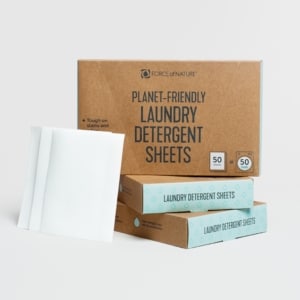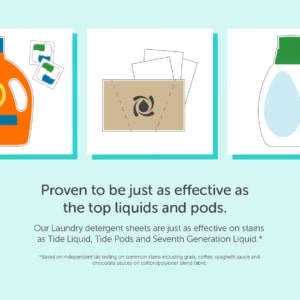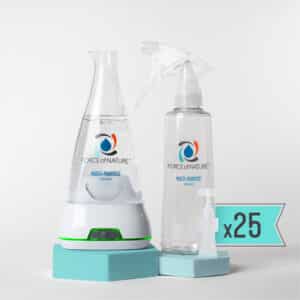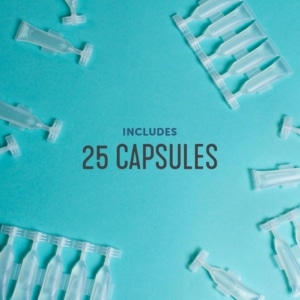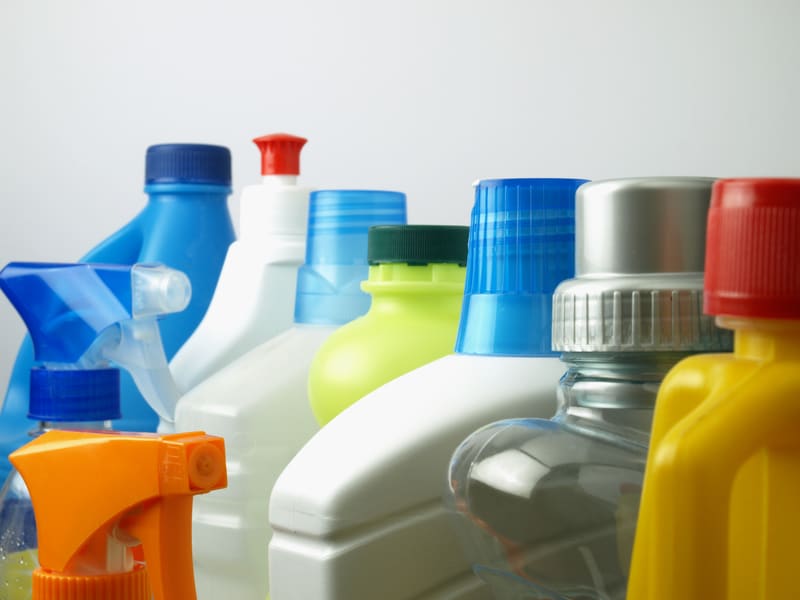
As we become more educated in our pursuit of non-toxic products, it seems like we’re always discovering a new link between a health risk and a commonly found ingredient. But what about the cumulative effect of our exposure to so many harmful ingredients over the course of our lifetimes? Recent studies have come out with some answers, and it isn’t good. But, as scary as these findings are, more information gives us more opportunities to make healthier choices. Here are a few things you need to know about some toxic bad guys to avoid as you seek out products for your home.
As Dangerous As Smoking?
One recent study found the effect of cleaning products on respiratory systems to be as damaging as smoking twenty cigarettes a day. Shocking, right? Maybe not when you consider how many common ingredients in household cleaners are linked to respiratory conditions like asthma and allergic reactions. The researchers found the chemicals irritated the delicate mucus lining of the lungs, causing permanent damage and an overall decline in lung health.
It’s in the air.
For many of us, pollution conjures up images of big cities encased in smog created by gas-guzzling SUVs. That thinking has proven to be outdated, as a recent finding showed that regulations on cars have significantly reduced the Volatile Organic Compounds (VOCs) emitted by automobiles in the last few decades. So what’s crowding our ozone? According to one new study, chemicals from our personal care and household cleaners. The study found that petroleum-based chemicals, which are used in perfumes and paints, emit pollution which can trigger asthma, cause permanent damage to our lungs and are linked to heart attacks, strokes and lung cancer. How much trouble can just a few spritzes of air freshener really cause? More than you might think, given 40% of chemicals added to consumer products wind up in the air.
Knowing some of the worst offenders is a good way to start sourcing toxic-free cleaning products for your home.
Shortcut to Toxic-Free Cleaning Products: Sniff Out Fragrance Free options.
Fragrance is a major problem. Fragrances are considered to be trade secrets, which allows manufacturers to hide literally hundreds of ingredients without disclosing them. So a product that contains fragrance will also likely contain phthalates, which are used to help fragrances last. Health risks for phthalates are startling and include cancer, human reproductive and developmental toxicity, endocrine disruption, birth defects & respiratory problems. As you scan labels, be wary of claims like “unscented” and “fragrance-free.” You also have to check the ingredient list, because sometimes manufacturers use masking fragrances to cover the chemical smell of their products. A fragrance-free product means it does not have an added fragrance, so technically, a fragrance-free product can still contain a scent, like an essential oil or floral water distillate, as long as the company didn’t use a fragrance to change the odor. At the end of the day, your best bet is to avoid all fragranced products – from household cleaning supplies to beauty and personal care products. And you’re always better off doing your own research on ingredients than trusting industry buzzword claims like “unscented” or “natural.”.
We’ll say it again: the work natural does NOT mean non-toxic
After all, arsenic and lead are natural and you wouldn’t want to ingest them. Even natural and botanical ingredients and fragrances can be harmful, as even they can trigger allergic reactions. So called “natural fragrances” can be just as toxic as synthetic fragrances. Terpenes, for example, are a natural fragrance emitted by citrus and pine trees (they’re actually the reason for the blue haze that gives the Blue Ridge Mountains their hue!), but they’re also linked to a host of respiratory issues like allergies and asthma. As researchers behind this study explain, whether synthetic or natural, when compounds get in the atmosphere, they’re reactive. Check out this article to make sure you don’t get duped by toxic “natural” products.
Be a Minimalist
Even if you’re doing your best to find safer personal care and toxic-free cleaning products, researchers say “to use as little of the product as you can to get the job done.” While finding toxic-free cleaning products will cut down on your exposure, a little goes a long way with any cleaning or personal care product. You don’t need to bring out the big guns for a little juice spill or use an entire palmful of dish detergent as you wash your dishes. For reference, check out this guide that shows you how much of each type of beauty product you should be using (example: a pea-size amount of facial cleanser will get the job done!).
But you don’t need to choose between effective cleaning and your health when it comes to household cleaning products. Our revolutionary cleaning system, Force of Nature, combines a hard-hitting cleaning power that’s as effective as bleach, with a formula that’s gentle enough to let your kids help (whether they will or not, that’s another story!). Learn more about our cleaning system made from simple household ingredients and formulated without VOCs, fragrances, preservatives or dyes. That’s one less thing to worry about!
